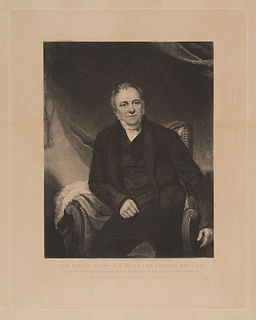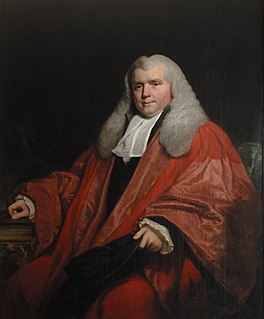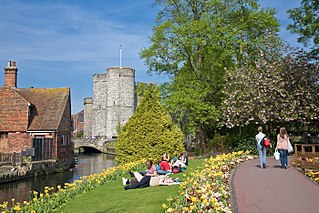The Order of precedence in New Zealand is a guide to the relative seniority of constitutional office holders and certain others, to be followed, as appropriate at State and official functions. The previous order of precedence is revoked and Her Majesty The Queen approved the following Order of Precedence in New Zealand effective 20 September 2018:
- The Queen of New Zealand.
- The Governor-General or, while acting in the place of the Governor-General, the officer administering the Government
- The Prime Minister.
- The Speaker of the House of Representatives
- The Chief Justice
- The Dean of the Diplomatic Corps
- The Deputy Prime Minister
- Ministers of the Crown
- Former Governors-General
- Ambassadors and High Commissioners in New Zealand and Chargés d’Affaires accredited to New Zealand.
- The Leader of the Opposition in the House of Representatives
- Leaders, including co-leaders and joint leaders, of political parties represented in the House of Representatives, other than Ministers of the Crown.
- Members of the House of Representatives. There is no established order of precedence over members of parliament in general, although each party has its internal ranking.
- Judges of the Supreme Court of New Zealand, the Court of Appeal and the High Court of New Zealand.
- Former Prime Ministers, former Speakers of the House of Representatives, former Chief Justices, and members of the Privy Council.
- Mayors of territorial authorities and chairpersons of regional councils, while in their own cities, districts and regions. In 1989, boroughs and counties were amalgamated into district councils. District mayors, and the Chatham Islands mayor could expect to be accorded this same precedence.
- The State Services Commissioner, Chief of Defence Force, Commissioner of Police, and Officers of Parliament .
- The Solicitor-General, Clerk of the House of Representatives, and Clerk of the Executive Council when attending a function involving the exercise of the position’s specific responsibilities.
- Chief executives of public service and non-public service departments.
- The Vice Chief of Defence Force, and Chiefs of Navy, Army and Air Force, and other statutory office holders.
- Consuls-General and Consuls of countries without diplomatic representation in New Zealand.
- Members of New Zealand and British orders, and holders of decorations and medals in accordance with the Order of Wear in New Zealand.
The Master of the Faculties is a functionary in the office of the Archbishop of Canterbury and has some important powers in English law, in particular the appointment and regulation of public notaries. The position is now always held by the Dean of Arches.
The Lord Chief Justice of Northern Ireland is the appointed official holding office as President of the Courts of Northern Ireland and is Head of the Judiciary of Northern Ireland. The present Lord Chief Justice of Northern Ireland is Sir Declan Morgan. His counterpart in England and Wales is the Lord Chief Justice of England and Wales, and in Scotland his equivalent is the Lord President of the Court of Session. The position was established with the creation of Northern Ireland in 1922.
The Court of Peculiars is an ecclesiastical court of the Church of England.
The Chancery Court of York is an ecclesiastical court for the Province of York of the Church of England.
The Court of the Vicar-General of the Province of York is responsible for granting Marriage Licences in the Province of York of the Church of England. The Vicar-General of the Province and Official Principal of the Consistory Court is distinct from the Dean of the Arches. The Registrar is the Registrar of the Chancery Court of York.
The Knight or Dame of St Andrew is an award within the Order of Barbados.
The Iron and Steel Institute was an English association organized by the iron trade of the north of England. Its object was the discussion of practical and scientific questions connected with the manufacture of iron and steel.
The Victoria Cross and George Cross Association is made up of holders of the Victoria Cross, Britain's highest military award for bravery in the field, and the George Cross, the equivalent award for civilians and military personnel who have displayed conspicuous bravery not in the face of the enemy.

Sir Herbert Jenner-Fust, was an English judge and Dean of the Arches.

Sir John Nicholl was a Welsh Member of Parliament and judge. As a judge he was noted "for inflexible impartiality and great strength and soundness of judgement".
John Nicholl was a Welsh Member of Parliament and was, for a very short time in 1835, a Lord Commissioner of the Treasury. His father was Sir John Nicholl, who like his son was a judge and politician.
The 1966 Dissolution Honours List was issued on 19 May 1966 following the dissolution of the United Kingdom parliament in preparation for a general election.
The 1895 Birthday Honours were appointments by Queen Victoria to various orders and honours to reward and highlight good works by citizens of the British Empire. The appointments were made to celebrate the official birthday of The Queen, and were published in The Times on 25 May 1895 and in The London Gazette on 25 May 1895 and on 11 June 1895.
The 1896 Birthday Honours were appointments by Queen Victoria to various orders and honours to reward and highlight good works by citizens of the British Empire. The appointments were made to celebrate the official birthday of The Queen, and were published in The London Gazette on 20 May and 26 May and in The Times on 20 May 1896.
The 1964 Dissolution Honours were officially announced on 27 November 1964 and marked the dissolution of parliament following the 1964 General Election.
Sir Philip Wilbraham Baker Wilbraham, 6th Baronet, KBE was a British ecclesiastical lawyer and administrator.



